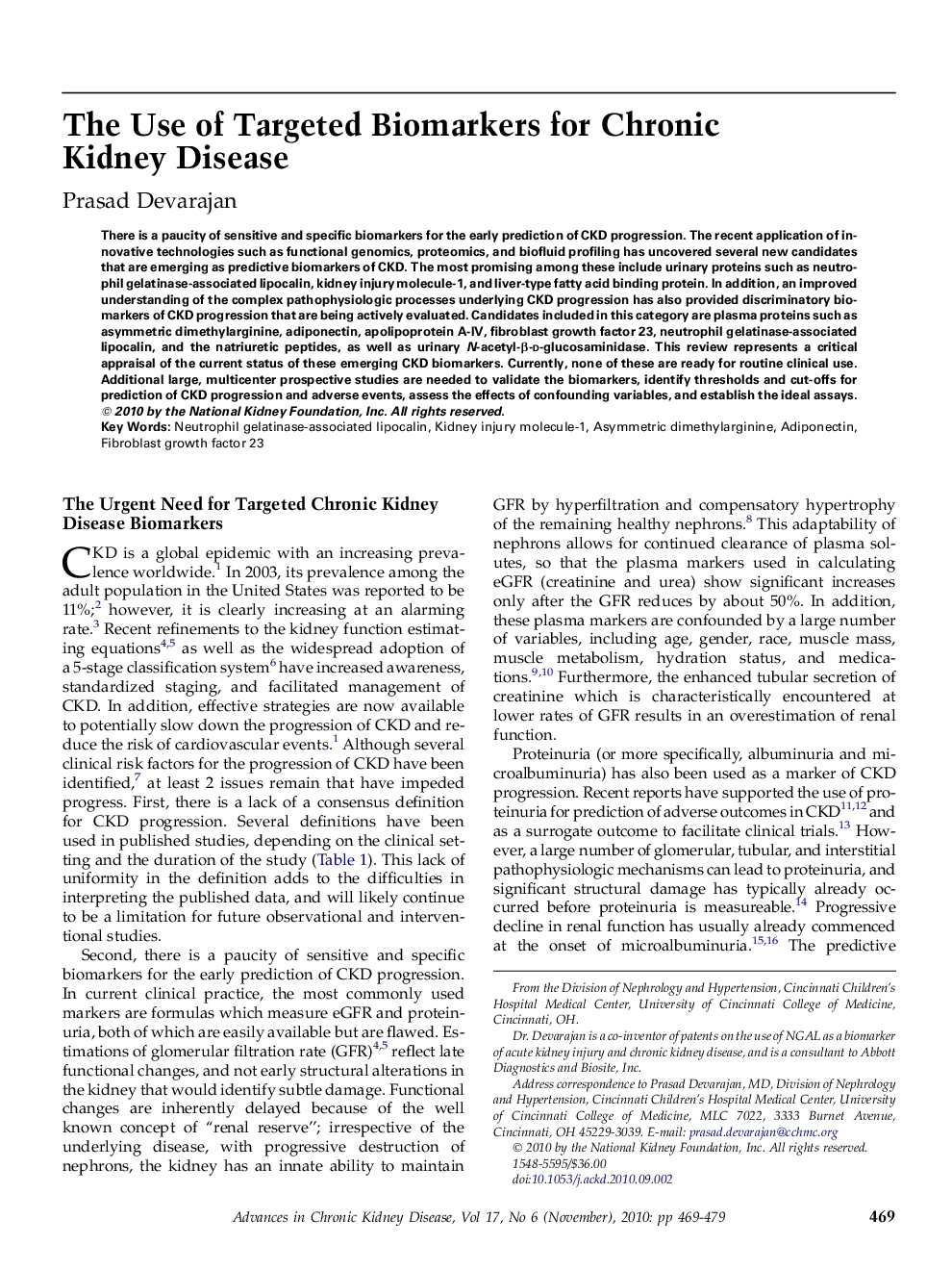| Article ID | Journal | Published Year | Pages | File Type |
|---|---|---|---|---|
| 3846642 | Advances in Chronic Kidney Disease | 2010 | 11 Pages |
Abstract
There is a paucity of sensitive and specific biomarkers for the early prediction of CKD progression. The recent application of innovative technologies such as functional genomics, proteomics, and biofluid profiling has uncovered several new candidates that are emerging as predictive biomarkers of CKD. The most promising among these include urinary proteins such as neutrophil gelatinase-associated lipocalin, kidney injury molecule-1, and liver-type fatty acid binding protein. In addition, an improved understanding of the complex pathophysiologic processes underlying CKD progression has also provided discriminatory biomarkers of CKD progression that are being actively evaluated. Candidates included in this category are plasma proteins such as asymmetric dimethylarginine, adiponectin, apolipoprotein A-IV, fibroblast growth factor 23, neutrophil gelatinase-associated lipocalin, and the natriuretic peptides, as well as urinary N-acetyl-β-d-glucosaminidase. This review represents a critical appraisal of the current status of these emerging CKD biomarkers. Currently, none of these are ready for routine clinical use. Additional large, multicenter prospective studies are needed to validate the biomarkers, identify thresholds and cut-offs for prediction of CKD progression and adverse events, assess the effects of confounding variables, and establish the ideal assays.
Keywords
Related Topics
Health Sciences
Medicine and Dentistry
Nephrology
Authors
Prasad Devarajan,
